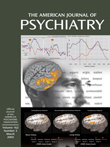Toward a Philosophical Structure for Psychiatry
Abstract
This article, which seeks to sketch a coherent conceptual and philosophical framework for psychiatry, confronts two major questions: how do mind and brain interrelate, and how can we integrate the multiple explanatory perspectives of psychiatric illness? Eight propositions are proposed and defended: 1) psychiatry is irrevocably grounded in mental, first-person experiences; 2) Cartesian substance dualism is false; 3) epiphenomenalism is false; 4) both brain→mind and mind→brain causality are real; 5) psychiatric disorders are etiologically complex, and no more “spirochete-like” discoveries will be made that explain their origins in simple terms; 6) explanatory pluralism is preferable to monistic explanatory approaches, especially biological reductionism; 7) psychiatry must move beyond a prescientific “battle of paradigms” to embrace complexity and support empirically rigorous and pluralistic explanatory models; 8) psychiatry should strive for “patchy reductionism” with the goal of “piecemeal integration” in trying to explain complex etiological pathways to illness bit by bit.



